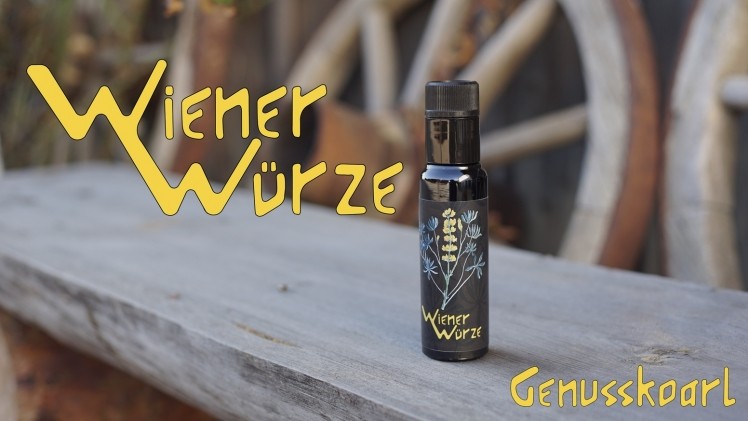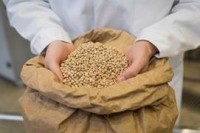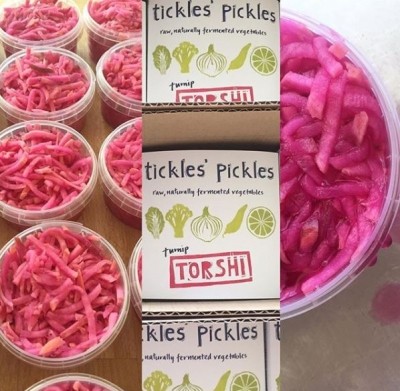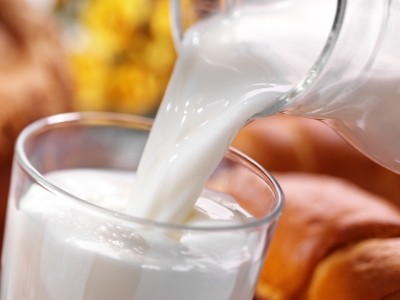Austrian start-up taps into fermentation trend with umami-packed seasoning

Fermented foods, from sauerkraut to kombucha, are a hot topic with consumers, and German-speaking countries are leading the way.
“Innovation [...] is increasingly focusing on the process of lacto-fermentation, an ancient technique which recently has been rediscovered by consumer products," says Mintel analyst, Julia Buech. "For some time now, traditional fermented vegetables, such as sauerkraut, have seen a revival, while fermented soft drinks in Germany, like Bionade and Fassbrause, have met a growing consumer desire for healthier, less sugary beverages.”
But for Karl Severin Traugott, food scientist and founder of Genusskoarl, the process of fermentation has always been a passion and that is what propelled him to create WienerWurze, a savoury sauce whose name is best translated as 'Viennese seasoning'.
“My main motivation for doing this was because I’m fascinated by fermenting foods, the process is really interesting but if it’s a momentary food trend that I am also tapping into then that definitely helps.”
"I chose lupin because of its amino acid profile, macro chemical properties and the fact that is an indigenous plant to Austria. The oats are for the fermentation process – you need a carbohydrate source. I wanted oats because it’s not so common which helps to increase biodiversity in fields and the agriculture sector and, for more personal reasons because I wrote my master thesis on the malting of oats, quinoa and amaranth.”
The production methods for WienerWurze are the same as soy but the final product has a different amino acid profile and “a more European taste”, says Traugott.
“It’s a very universal product [with a] salty and umami taste so you can use it for everything you would add salt to in order to enhance the flavour of the dish in natural way. Personally I use it for meat marinades, salad dressings or to season soups instead of stock cubes.”
The other two ingredients are organic salt – additive-free with no added iodine or anti-caking agent – and water.
“The food industry tells us they need to add additives but I get the [functional] benefits from just four ingredients.”
From farm to fork
As for the target consumer, Traugott said the product will appeal to anyone who is interested in where food products actually come from. “There’s a huge trend of people wanting high traceability and one of my goals is to share the story right at the start the story of the network of farmers from whom I buy raw materials directly […] via a QR code, they can know the grain was grown in this field, in this month.”
Located on the outskirts of Vienna, Genusskoarl sources its ingredients from local, organic farmers and the seasoning will retail for €4.99 in 100 ml bottles and €6.99 for 250 ml.
Two-step fermentation process
Lacto-fermentation is the most common type of fermentation. It leads to a decrease in the level of carbohydrates and an increase in beneficial enzymes, various strains of probiotics and friendly bacteria, and is said to help break down foods to a more digestible form.
Traugott explains: “The first step is a dry fermentation process. We soak and cook the lupin and roast and crush the oats. Then they are mixed with a starting culture, aspergillus oryzae, and this slightly humid mixture ferments at 30 degrees.
“A mould culture starts to grow on the product, and after three days the whole mixture is completely covered by mould. We add the saline solution and then the second fermentation step, which takes up to four months, begins.
“This is spontaneous fermentation – lactic acid bacteria grow and feed on the protein supplied by lupin. That gives the umami flavour.
Probiotic properties?
"I haven’t done any major investigations into [the probiotic composition], but I’m pretty sure the sauce contains bacteria produced during the fermentation, and I believe these have health benefits," he says. "It might have probiotic properties but were not making any claims as it’s not possible in Europe.”
Kickstarter campaign
Traugott says the biggest challenge was finding finance.
But the 112 backers that Genusskoarl received during its Kickstarter campaign - who helped it go beyond its €10,000 target – was proof for the food scientist-turned-entrepreneur that he was on to a winning idea.
“I had backing from a lot of friends and family but also many people I’d never met. It made me realise that I’m on the right [path] because their support is like direct feedback from the market.”
Genusskoarl can currently produce batches of 400 – 500 litres, and it takes up to four months to produce a single batch. For the minute the start-up will be focussing on Austria and Germany - several organic retailers have already expressed an interest in listing the seasoning - but Traugott ultimately has export ambitions beyond there.


























